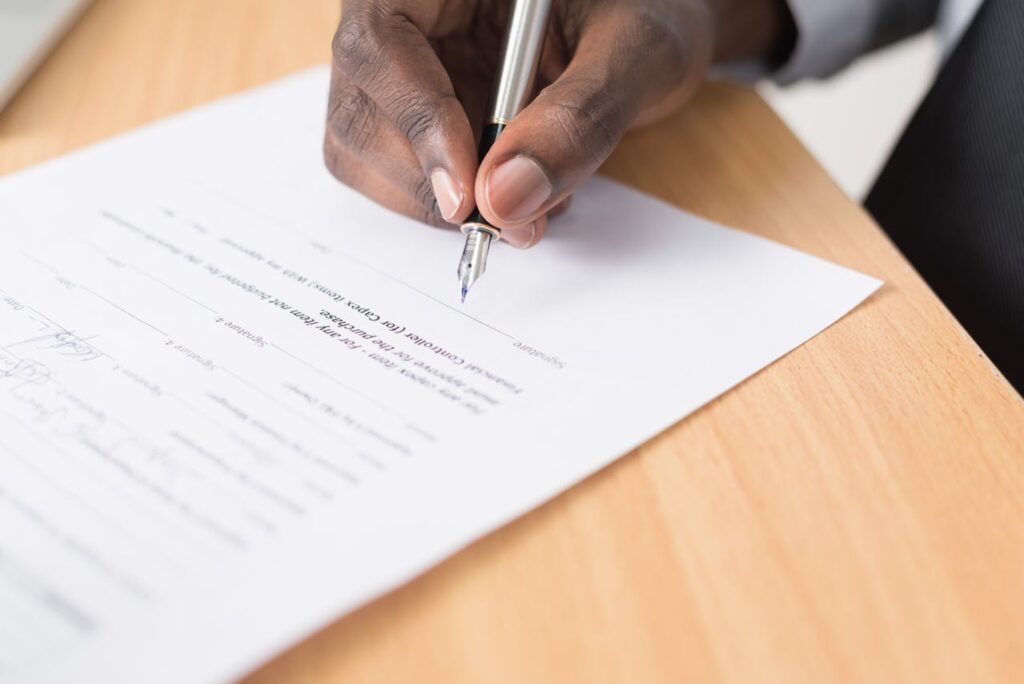Are Directors Responsible for Company Debts?

Generally speaking, directors of limited companies are protected from personal liability for company debts. A limited liability company… the clue is in the name.
One of the main reasons people form limited liability companies is to limit their exposure to business debt.
Limited companies are incorporated as distinct legal entities. The courts view this entity as legally separate from the directors who may own and run the business. This is sometimes called ‘the corporate veil’.
However, there are exceptions to directors being free of personal liability — primarily in situations where creditors need to be protected from negligent or dishonest conduct by the directors if the company is in difficulty.
A directors’ potential responsibility for business debts is wholly linked to their actions and behaviour when the company is in deficit or insolvent. Also, the liquidator can bring claims for breach of director’s duties at times the company was not insolvent.
What Are Directors’ Liabilities for Company Debts?
The legal structure of the company limits directors’ personal liability for company debts. However, suppose the company is in financial difficulty or has become insolvent. In that case, the directors may be held personally liable if they take any action or omit taking an action that worsens their creditors’ position.
Specific transactions and activities will be of interest to the liquidator in determining liability – these are called antecedent transactions.
Antecedent transactions are acts or omissions that undermine the position of a sole creditor or a group of creditors.
Here are some examples of antecedent transactions that can have direct financial consequences for the company’s directors.
Directors’ Loan Accounts
Directors overpaying themselves from the company account can create personal liability. An overdrawn director’s account will be subject to repayment by the individual as this is deemed an asset of the company.
Undervalued Transactions
The liquidator may view selling assets below their market value — even to facilitate a quick sale — as diminishing the return to creditors. The liquidator may order that these transactions be reversed.
Preferential Payments
A preferential payment occurs when one creditor is preferred over another and paid ahead of other creditors in the queue. The liquidator may require this money to be repaid by the creditor.
Unlawful Dividend Payments
Dividends may only be paid when there are profits available to support them. An insolvent company should not generate a dividend payment. The liquidator will ask for dividends drawn in this situation to be returned. If the company is in difficulty but not yet insolvent, making a dividend payment may still be unlawful.
Personal Guarantees
Banks, suppliers, and other organisations will often not extend credit or lend money to small businesses without a personal guarantee from the owner or a director. They understand the difficulty of getting their money back if a limited company becomes insolvent.
A director who has signed a personal guarantee can be made liable for the debt if the company is unable to pay. Credit transactions where a personal guarantee is typically required include loans for business vehicles or equipment or a commercial lease.
Fraud and Misrepresentation
A director who lies or misrepresents any material fact when applying for credit or a loan on the business’s behalf can be held personally liable for the debt.
Inaccurate Record Keeping
Failure to maintain a formal separation between personal and business finances may allow creditors to pursue a director personally for business debts. Maintaining accurate and separate company accounts is a legal requirement under the Companies Act 2006.
When Can a Director Be Liable for Company Debts?
The issue of directors becoming personally liable for company debts usually arises at the point of insolvency. The legislation which covers this situation is the 1986 Insolvency Act.
Section 214 of the Insolvency Act refers to ‘wrongful trading’ — the term used to describe scenarios where a company director fails to put the interests of creditors first while knowing the business was insolvent.
Wrongful trading does not necessarily reflect a conscious desire to defraud creditors; it can occur due to a misunderstanding or lack of awareness about the correct procedures to follow.
If a limited company is in financial trouble or becomes insolvent and goes into liquidation, its directors have a legal duty to protect creditor interests.
Failure to do so can expose the directors to personal liability for the company’s debts.
Directors must not take or omit any action that compromises or worsens the position of creditors. Directors will be scrutinised in this regard by the liquidator.
Directors have a responsibility to cease trading as soon as the company becomes insolvent. Continuing to trade and thereby making the company’s debt situation worse can lead to personal liability for the directors.
Company directors also have a duty to ensure that other officers in the company — including shareholders and employees — do not take any action that may reduce the amount creditors could receive in liquidation.
It is not a defence to say you did not take an active role and left the running of the busniness to another director. A director’s duties and liabilities are absolute and cannot be ignored.
What Are the Consequences for a Director if They Become Liable for Company Debts?
The primary consequence for a director held personally liable for company debts is loss of assets or personal bankruptcy if they cannot pay the money owed. Court action by the liquidator may be taken against directors and the damages realised from the director’s personal assets. The director would also be liable for the liquidator’s significant legal costs.
Directors may also be formally disqualified and prevented from holding further directorships for a period of up to 15 years.
A disqualification order can restrict that director from taking on other roles, such as a charitable trustee for a school or other organisation.
Clear evidence of fraudulent activity could lead to criminal prosecution and a prison sentence.
Can Sole Traders and Partnerships be Held Liable for Company Debts?
Sole traders are personally liable for their business debts. There is no separate legal entity responsible for business debts, unlike with a limited liability company. The courts view a sole trader and their business as one legal entity.
Being a sole trader is also sometimes called sole proprietorship. Almost all sole traders are classified as self-employed.
If a sole trader incurs debts in the business’s name, they may need to be paid out of their personal assets. Unpaid debts can result in creditors pursuing the sole trader personally to recover their money.
A partnership consists of two more people operating a business either jointly or severally. In the UK, there are two types of partnerships that limit liability: limited partnerships and limited liability partnerships.
In a limited partnership, there can be two types of partners: general partners and limited partners. Liability for any business or company debts is usually split equally between the general partners unless the partnership agreement states otherwise.
Occasionally, partners are limited to a level of personal liability that reflects their investment in the business. Such partners are called limited partners.
In a limited liability partnership, also called an LLP, the partners are only held personally liable for debts the business incurs up to the amount of money they have invested in the company.
Partners in a general partnership have unlimited liability for the debts of the partnership.
Frequently Asked Questions
Is a Director Liable for Company Debts?
Directors of limited companies are generally shielded from personal liability for company debts due to the principle of limited liability. While the corporate structure offers this protection, directors can become liable if their actions exacerbate creditor positions during insolvency, such as preferential payments, fraud, or wrongful trading.
Conclusion
Company directors often seek specialist legal advice regarding protection from personal liability for business debts if their company is struggling and heading towards insolvency.
Taking prompt action helps show a liquidator that director had the desire to act responsibly towards creditors. Any attempt to do the right thing and follow correct procedures demonstrates compliance and may minimise potential personal exposure to company debts.
Helix Law offers specialist legal advice to company directors whose business is heading towards insolvency.
We can help protect director interests with clear guidance about acting with due diligence, identifying areas where directors may be vulnerable, and strategically managing the situation to minimise personal liability.


